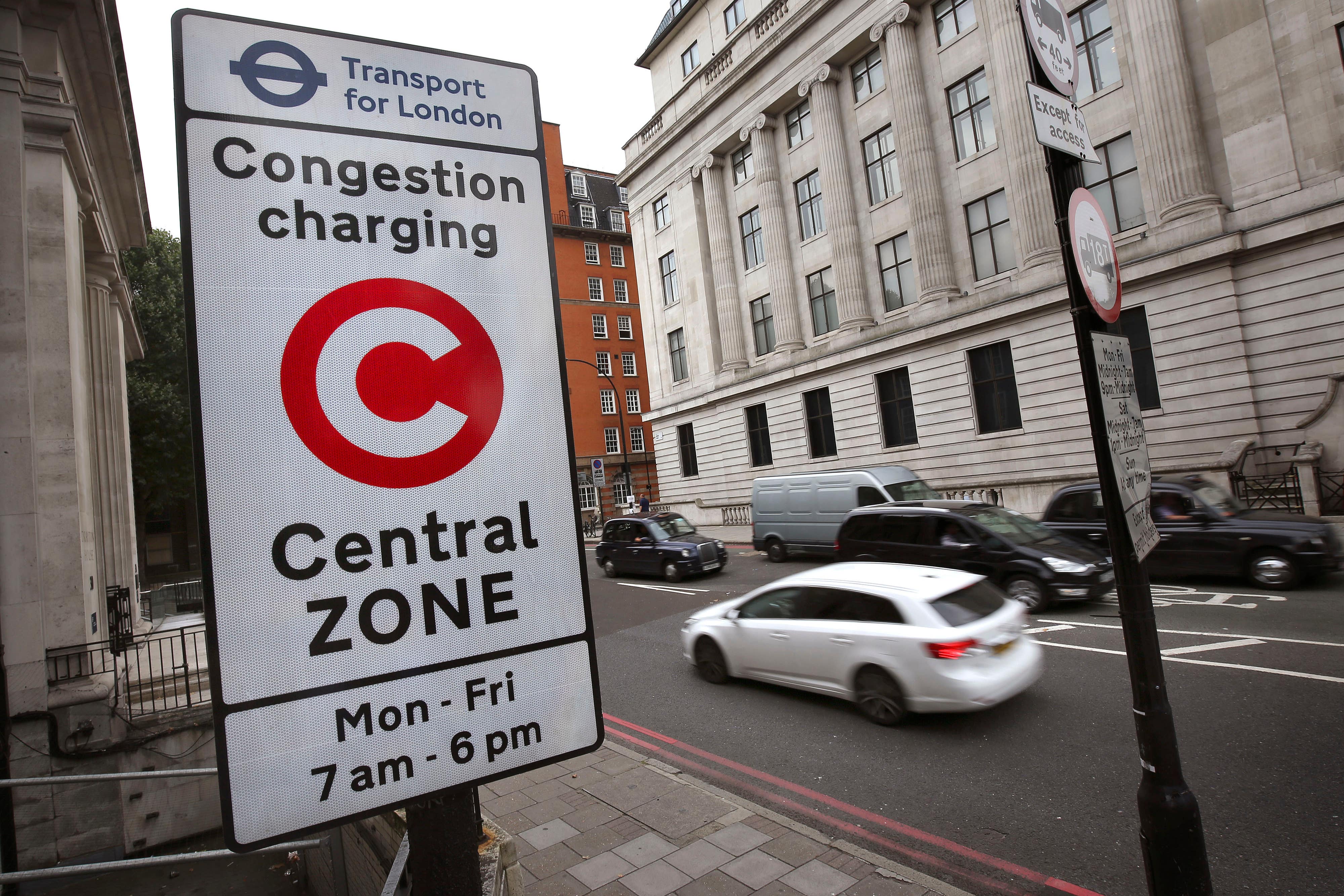US embassy racks up £14.6m in unpaid congestion charge fees
Statistics published by Transport for London show this is the most among all embassies in the capital.

Your support helps us to tell the story
From reproductive rights to climate change to Big Tech, The Independent is on the ground when the story is developing. Whether it's investigating the financials of Elon Musk's pro-Trump PAC or producing our latest documentary, 'The A Word', which shines a light on the American women fighting for reproductive rights, we know how important it is to parse out the facts from the messaging.
At such a critical moment in US history, we need reporters on the ground. Your donation allows us to keep sending journalists to speak to both sides of the story.
The Independent is trusted by Americans across the entire political spectrum. And unlike many other quality news outlets, we choose not to lock Americans out of our reporting and analysis with paywalls. We believe quality journalism should be available to everyone, paid for by those who can afford it.
Your support makes all the difference.The US embassy in London has racked up £14.6 million in unpaid congestion charge fees, figures show.
Statistics published by Transport for London (TfL) revealed this is the most among all embassies in the capital.
The Japanese embassy has the second highest debt at £10.1 million, followed by the high commission of India at £8.6 million.
Among all embassies, the total is £143.5 million.
The majority of embassies in London do pay the charge, but there remains a stubborn minority who refuse to do so, despite our representations through diplomatic channels
The figures relate to unpaid fees and fines accrued by diplomats between the launch of the congestion charge in 2003 and the end of last year.
The scheme involves a £15 daily fee for driving within an area of central London between 7am and 6pm on weekdays, and between noon and 6pm on weekends and bank holidays.
There are discounts and exemptions for various groups of people and vehicles, such as residents, taxis and fully electric cars.
TfL said in a statement: “We and the UK Government are clear that the congestion charge is a charge for a service and not a tax.
“This means that diplomats are not exempt from paying it.
“The majority of embassies in London do pay the charge, but there remains a stubborn minority who refuse to do so, despite our representations through diplomatic channels.
“We will continue to pursue all unpaid congestion charge fees and related penalty charge notices, and are pushing for the matter to be taken up at the International Court of Justice.”
A spokesperson for the US embassy in London, which moved from Grosvenor Square to Nine Elms in January 2018, said: “In accordance with international law as reflected in the 1961 Vienna Convention on Diplomatic Relations, our position is that the congestion charge is a tax from which diplomatic missions are exempt.
“Our long-standing position is shared by many other diplomatic missions in London.”
In February 2020, then-foreign secretary Dominic Raab issued a written ministerial statement revealing that his officials have written to “a number of diplomatic missions and international organisations” to “press for payment” of money owed relating to the congestion charge, parking fines and business rates.